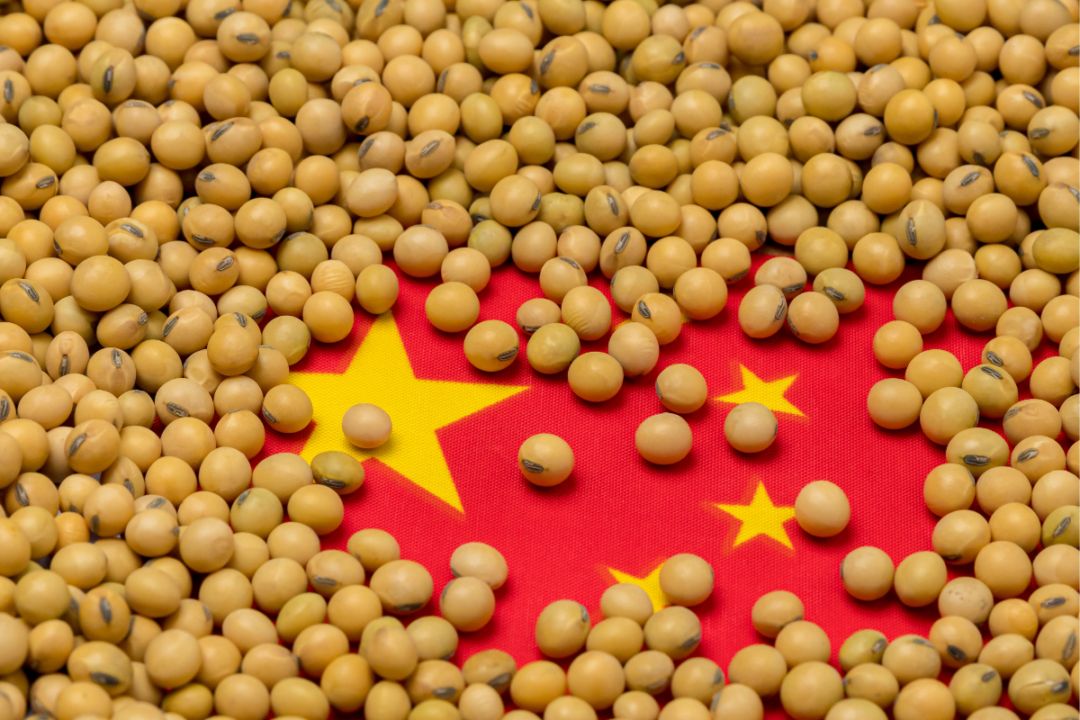China steps up sampling of soy cargoes, traders say

China is significantly increasing the rate of inspections on imported soybean cargoes, three soybean traders told on Friday, lengthening already slow and costly clearing times in the world’s top buyer of beans.
China last month introduced new procedures at customs for discharging soybeans, which had already delayed clearing times and pushed up costs for buyers of the world’s most-traded protein source.
In recent days, ports have also stepped up sampling of cargoes to check for pests and residues, the traders said, which will further add to costs and hurt demand.
“It is a double whammy. Earlier there were delays in getting import licences and over the last few days there are more stringent checks on cargoes,” said a Singapore-based trader at an international trading firm.
China, which buys more than 60% of soybeans shipped worldwide, mainly takes cargoes of the oilseed from Brazil and the United States.
The stricter customs checks come at a time of ample global supplies of the oilseed, which is crushed to make protein-rich soymeal for animal feed and cooking oil.
Slow clearing times at Chinese ports are pushing up spot soymeal prices, exacerbating recent losses for farmers in China who raise half of the world’s pigs.
Soymeal prices in China have jumped close to 14% since the beginning of April.
At China’s top soybean port in Rizhao, which handled more than 10 million tonnes of soybeans last year, all vessels arriving in the last two days have been inspected, said two China-based traders with knowledge of the situation.
Previously only one in five vessels would typically be sampled, said one of the traders, adding that it takes up to 10 working days before the cargoes can be discharged after inspection.
The traders declined to be named given the sensitivity of the matter.
A Cargill media representative in China did not immediately respond to a request for comment and a US-based spokesperson at Bunge did not reply to a request for comment outside business hours.
A person working in COFCO Group’s media department said she was not aware of the situation.
The three companies are among several with crushing plants at Rizhao.
An official at Rizhao port referred Reuters to China’s customs authorities. China’s customs did not immediately respond to a fax seeking comment on the issue.
Other ports in the country have also stepped up soybean cargo inspections in recent weeks, said one of the Beijing traders and the Singapore trader.
“They’re taking far more samples than usual and that’s the real thing that is causing delays,” said a manager at an international trading firm in China.
It is not clear why customs authorities have increased soy inspections. The samples are checked for pesticide residues, plant pests and other phytosanitary problems.
About 30 vessels carrying about 1.8 million tonnes of soybeans are currently waiting at anchorage off ports, said the Singapore trader, incurring mounting demurrage costs.
Demurrage, or fees paid to ship owners for failing to offload cargo on agreed time, can be as much as $20,000 a day for a panamax vessel carrying 60,000 tonnes of soybeans.
Read also
Join with the EARLY RATE – 22 International Conference BLACK SEA GRAIN.EUROP...
Brazil sugar output decreased by 23% — Unica
Algeria imposes a complete ban on durum wheat imports in 2025
Weather in Brazil and Argentina remains favorable for the future harvest of soybea...
Ukrainian flour exports are 35% behind last year’s volumes
Write to us
Our manager will contact you soon



